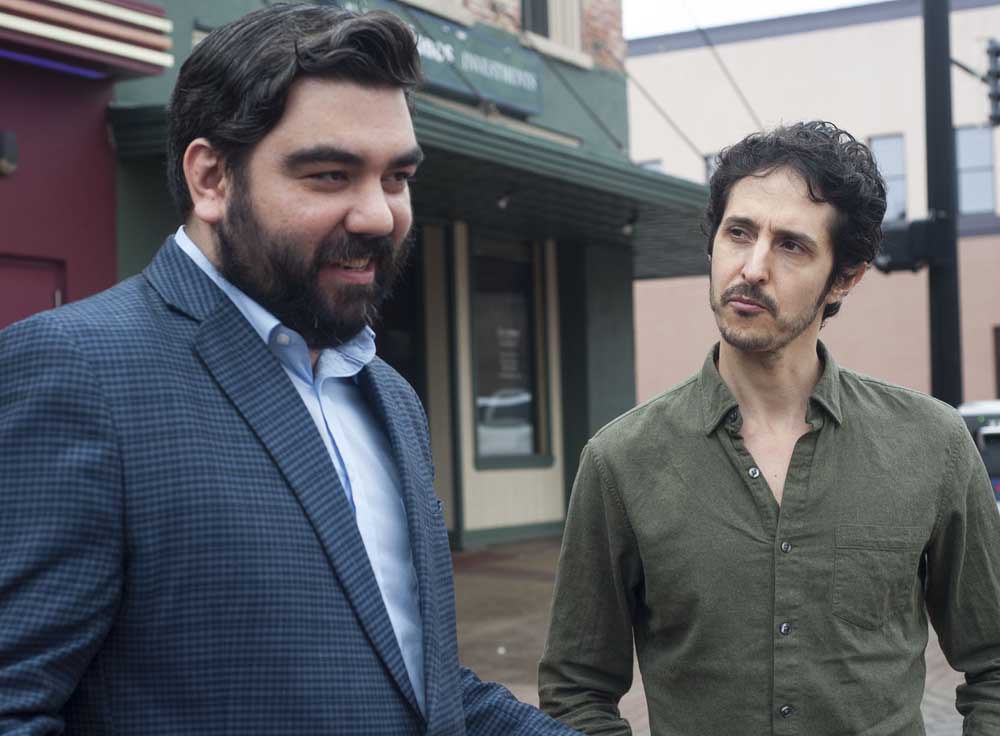Man On Fire premieres at Liberty Hall, filmmakers seek to encourage conversation on history of race in rural East Texas
Published 5:45 pm Wednesday, February 28, 2018

- "Man on Fire" movie producer James Chase Sanchez and director Joel Fendelman stand outside of Liberty Hall in downtown Tyler where a free screening will be held on Wednesday Feb. 28, 2018. The documentary is about Charles Moore, a minister who died by self-immolation in 2014 in Grand Saline. He left a suicide letter asking the community to repent for its racism. (Sarah A. Miller/Tyler Morning Telegraph)
When filmmakers set out to tell the story of Charles Moore, they discovered the conversation about race was larger than just Grand Saline, Texas.
“Man on Fire,” directed by Joel Fendelman and produced by Grand Saline native James Chase Sanchez, explores the history of a pastor who made a radical choice in an attempt to heal the divides caused by the history of racism in the small East Texas town. After years of work, their story has made it back to East Texas, premiering at Liberty Hall on Wednesday.
In a moment of frustration and desperation, hoping to bring about a conversation on the culture of racism in East Texas, Moore set himself on fire in a Grand Saline dollar store parking lot in 2014. A note and writing left by Moore indicated he felt he had not done enough to help bring about social change.
Sanchez was at Texas Christian University writing his dissertation about Moore’s death and how the community talks about race when he was connected with Fendelman, who was a grad school film student at the University of Texas at Austin at the time.
“I think it captured me,” Fendelman said. “This was a story that needed to be told.”
Through their research and the filming process, Sanchez and Fendelman met many residents willing to tell the stories they’d been told growing up in the area.
“Grand Saline is and is not unique,” Sanchez said. “What makes them unique is this mythology of being one of the most racist areas in America. When you dig into history, it’s not that exceptional.”
Sanchez and Fendelman hope the conversations in the film will prompt viewers to begin looking at their own towns.
“In no way are we trying to make an indictment of Grand Saline. It’s a vehicle to have this conversation,” Fendelman said. “What I learned is how subtle it is. Even in myself, I see my own bias and I can reflect on it.”
Sanchez said he has learned how tough it can be to talk about issues involving race and how to move forward.
“What changed (after Moore’s death)? I don’t think there was a wide sweeping communal change,” Sanchez said. “It did start a public conversation. What does it mean to be called a racist town?”
Sanchez said residents were open and honest about their experiences, and while they had all heard stories and myths, which are addressed in the film, few of them had documentation or evidence.
The film has been featured in several film festivals and will be making the rounds at local colleges. The UT Tyler Honors Society sponsored Wednesday’s showing.
Sanchez and Fendelman hope to get others involved through the use of the #MyTownToo hashtag and by hosting more screenings at colleges around the country.
Twitter: @TMT_Cory






